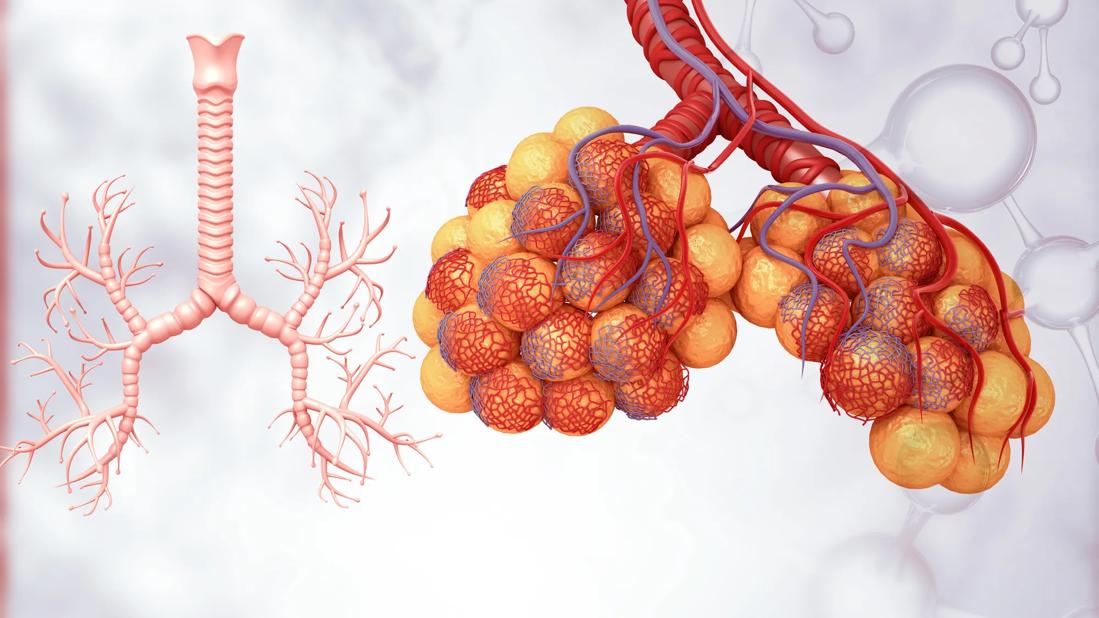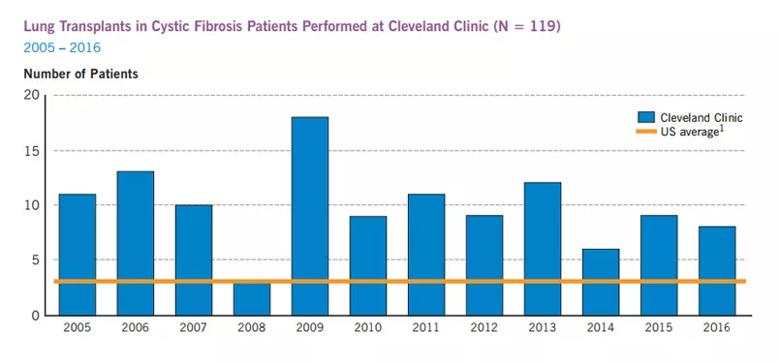Adult program a leader in CF lung transplants

Cleveland Clinic has obtained accreditation as a Cystic Fibrosis (CF) Care Center from the U.S. Cystic Fibrosis Foundation. Cleveland Clinic’s Adult Cystic Fibrosis Program joins a network of more than 100 Care Centers across the U.S. specializing in the diagnosis, management and treatment of individuals with CF.
Advertisement
Cleveland Clinic is a non-profit academic medical center. Advertising on our site helps support our mission. We do not endorse non-Cleveland Clinic products or services. Policy
“We’re excited that our efforts to provide world-class care to all patients with cystic fibrosis have been recognized by the foundation,” says Elliott Dasenbrook, MD, Director of the program and a member of the Department of Pulmonary Medicine.
Cleveland Clinic’s Adult CF Program provides multidisciplinary patient- and family-centered care for patients living with CF, from maintaining health for those with early-stage lung disease to supporting patients through and after lung transplant. The program partners with patients and their families to deliver high-quality care that respects patient preferences, needs and values. Members of the Adult CF team work closely with Nathan Kraynack, MD, and his team at Cleveland Clinic Children’s CF Program to transition patients who are ready for adult care. The program cares for more than 100 patients.
Our multidisciplinary team treats local patients as well as CF patients from all over the world with difficult-to-treat infections. The program includes physicians from pulmonary medicine, infectious disease, transplant surgery, gastroenterology, endocrinology and hepatology. A robust infection control protocol, and clinical and research expertise in the treatment of methicillin-resistant Staphylococcus aureus (MRSA) in patients with CF, aim to reduce morbidity and mortality from this disease.
The CF team works closely with the Cleveland Clinic Lung Transplant program, one of the busiest and most experienced in the world. This close collaboration allows us to evaluate CF patients with advanced lung disease who require lung transplantation and to provide comprehensive care to those awaiting transplantation in order to optimize their suitability for this procedure. In recognition of its expertise in both CF care and transplantation, Cleveland Clinic is a member of the CF Lung Transplant Consortium, comprised of leading centers around the country and charged with the task of improving post-transplant outcomes for the CF population.
Advertisement

Image content: This image is available to view online.
View image online (https://assets.clevelandclinic.org/transform/9aeaf985-964d-40d5-b348-9f04ba412470/17-PUL-3434-Dasenbrook-Inset-Image-01-805pxl-width_jpg)
Advertisement
Advertisement

Findings hold lessons for future pandemics

One pediatric urologist’s quest to improve the status quo

Overcoming barriers to implementing clinical trials

Interim results of RUBY study also indicate improved physical function and quality of life

Innovative hardware and AI algorithms aim to detect cardiovascular decline sooner

The benefits of this emerging surgical technology

Integrated care model reduces length of stay, improves outpatient pain management

A closer look at the impact on procedures and patient outcomes